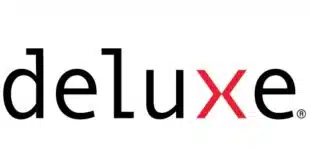n
MasterCard Inc.’s top brass said on Wednesday that they would not copy Visa Inc. in imposing a so-called network participation fee to retain debit card issuers under new federal regulations that will ban exclusive affiliations between card networks and issuers.
n
n
Instead, MasterCard said it would work on a case-by-case basis with issuers, merchant acquirers, and merchants to assure their loyalty when the affiliation and transaction-routing provisions of the so-called Durbin Amendment to 2010’s Dodd Frank Act take effect Oct. 1 for networks and April 1, 2012, for issuers. “We still think our benefit comes from being flexible, deal by deal, and thoughtful, deal by deal,” MasterCard president and chief executive Ajay Banga said at the company’s quarterly earnings call.
n
n
The Durbin Amendment will outlaw currently common arrangements in which issuers offer debit cards that route transactions only through affiliated networks, such as Visa for signature debit and the Visa-owned Interlink network for point-of-sale PIN debit. Unlike Durbin’s interchange restrictions, which apply to banks with assets over $10 billion, its affiliation and routing provisions apply to all issuers, regardless of asset size.
n
n
As the market leader in both signature and PIN debit with many such exclusive arrangements with issuers, Visa is expected to lose volume once the new rules kick in and issuers begin adding at least one unaffiliated network to each debit card. In a sharp departure from traditional, variable network pricing, Visa last week announced a new, fixed network participation fee that its top executives said would lower issuers’ costs to use Visa, though they gave few details.
n
n
Visa’s new pricing had analysts wondering whether MasterCard, which has only about a 9% share of the U.S. PIN-debit market, would also roll out such a fee. But Banga and Chris A. McWilton, U.S. market president, were clear that MasterCard would take a different route, one based on specific agreements with debit issuers, acquirers, and merchants themselves to generate MasterCard transactions. “Ours is one of potential upside, not the need to defend a large incumbent position,” McWilton said. “A deal-specific approach is needed to give the flexibility to navigate all the complexities.”
n
n
Visa and MasterCard pay incentives and rebates on network expenses to card issuers to pump out cards with their brands and to merchants to route transactions their way. MasterCard paid $534 million in the second quarter on such rebates and incentives, up 15.5% from $463 million a year earlier. Visa paid $448 million for what it calls “client incentives” in its third fiscal 2011 quarter ended June 30, up 14% from $393 million in 2010’s third quarter.
n
n
According to McWilton and Banga, a Visa-like approach might box MasterCard in. “PIN-debit economics pre-Durbin were quite thin, and will become even thinner after paying routing incentives,” McWilton said. He later added in response to an analyst’s question that a network-participation fee “sub-optimizes our economics … our objective is not to go out there and buy every PIN transaction that exists in the U.S. today.” Banga also noted that MasterCard’s Maestro PIN-debit network is the only one with international utility.
n
n
Reflecting Visa’s commitment of earlier this year, however, Banga reported that MasterCard recently told its issuers that it would implement a two-tiered debit interchange schedule based on the Durbin Amendment’s threshold of issuers with $10 billion or more in assets being subject to interchange regulation and those will fewer assets remaining unregulated. Smaller issuers fretted that despite their legal exemption, the networks might impose uniform debit card interchange rates at the lower, regulated level for big issuers. The Federal Reserve Board in late June came out with its final rule implementing the Durbin Amendment, a rule that will cut interchange for regulated issuers by more than 40%. The rule also includes the network-affiliation provisions.
n
n
As with Visa, U.S. debit displayed healthy growth for MasterCard in the quarter ended June 30. Purchase volume jumped 19.1% to $98 billion from $82 billion a year earlier, with the underlying transaction volume growing 16.8% to 2.47 billion. MasterCard’s U.S. credit and charge card purchase volume increased 6.1% to $129 billion from $121 billion in 2010’s second quarter. Credit and charge card purchase transactions grew 3.3% to 1.52 billion.
n
n
While growth was strong in the U.S., it was even stronger elsewhere in the world, lifting MasterCard’s net revenues to $1.67 billion, up 22.1% from $1.37 billion in 2010’s second quarter. Excluding acquisitions, MasterCard’s revenue growth would have been 19%. Net income jumped 32.8% to $608 million from $458 million a year earlier.
n





